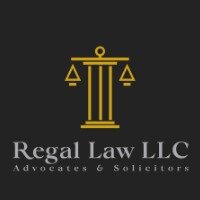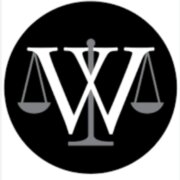Best Sanctions & Export Controls Lawyers in City Hall
Share your needs with us, get contacted by law firms.
Free. Takes 2 min.
List of the best lawyers in City Hall, Singapore
About Sanctions & Export Controls Law in City Hall, Singapore
Sanctions and export controls are legal frameworks that regulate the movement of goods, technology, and services across Singapore’s borders. In City Hall, Singapore, these laws are designed to align the country with international obligations, maintain national security, and prevent the proliferation of dual-use or military-sensitive products. Sanctions are restrictive measures imposed on specified countries, individuals, or entities, while export controls govern what can be shared or sold outside Singapore. Whether you are a business owner, consultant, shipping professional, or individual traveler, understanding these laws is essential to avoid severe penalties.
Why You May Need a Lawyer
There are situations when seeking legal help for sanctions and export controls is critical. These include:
- Exporting goods or technology that may be controlled or restricted
- Engaging in business transactions with countries or entities subject to sanctions
- Receiving an inquiry or investigation notice from Singapore Customs or other authorities
- Facing penalties for non-compliance with trade controls
- Structuring international transactions involving sensitive destinations or products
- Needing advice on license applications or exemptions
- Risk assessment and compliance management for your company
A lawyer experienced in this field can help you interpret the law, navigate government regulations, and represent you in investigations or hearings.
Local Laws Overview
Sanctions and export controls in City Hall, Singapore, are governed primarily by the Strategic Goods (Control) Act, the United Nations Act, and related subsidiary legislation. These laws give effect to United Nations Security Council sanctions and address Singapore’s national interests:
- Strategic Goods (Control) Act: Regulates the export, transit, and transshipment of strategic goods, technologies, and services listed under the Strategic Goods (Control) Order.
- United Nations Act: Implements UN sanctions, including prohibitions on certain transactions with designated countries or parties.
- Customs Act: Governs general import and export restrictions for controlled or prohibited items.
- Prohibited Exports: Specific items, such as military equipment or dual-use technology, may require export permits or are banned outright.
- License Requirements: Certain goods and technology transfers need an export license or permit from the authorities before overseas movement.
- Compliance Duties: Companies must screen transactions and customers, keep accurate records, and report suspicious activities.
Non-compliance can result in stiff penalties such as fines, imprisonment, and loss of export privileges.
Frequently Asked Questions
What are export controls?
Export controls are legal restrictions imposed by the Singapore government to regulate the exportation of specific goods, technologies, and services out of the country, especially those with potential military or dual-use applications.
What are sanctions in the Singapore context?
Sanctions are legal measures that restrict or prohibit dealings with particular countries, entities, or individuals, often in alignment with United Nations Security Council Resolutions.
Do export controls apply to intangible transfers, such as online or cloud storage?
Yes, Singapore’s laws cover intangible transfers such as emails, cloud sharing, and online downloads of controlled technology or information.
Are there any penalties for breaching sanctions or export controls?
Consequences may include heavy fines, imprisonment, loss of business licenses, and reputational harm.
Who enforces export control and sanctions laws in Singapore?
The main enforcement agencies are Singapore Customs, the Ministry of Trade and Industry, and the Monetary Authority of Singapore for financial sanctions.
Do I need a license to export goods from Singapore?
It depends on the nature of the goods. Many strategic goods, dual-use items, military-related products, and some technologies require an export license.
How do I determine if my product or transaction is subject to controls?
You must check the latest Strategic Goods Control List and the relevant sanctions orders. Legal counsel or compliance experts can help with classification.
Can sanctions affect financial transactions?
Yes, it is prohibited to provide, receive, or facilitate funds or financial services to or from sanctioned parties.
Are there specific destinations or countries that I should be aware of?
Yes, countries like North Korea, Iran, and others currently subject to international sanctions may have special restrictions.
What should I do if I suspect a transaction might be prohibited?
Consult a lawyer or compliance professional immediately and consider making a voluntary disclosure to the authorities. It is better to be cautious to avoid legal consequences.
Additional Resources
Several governmental and professional bodies in Singapore can provide guidance and support on sanctions and export controls, including:
- Singapore Customs - for trade control regulations and licensing
- Ministry of Trade and Industry - for policy updates and sanction orders
- Monetary Authority of Singapore - for information on financial sanctions
- Chamber of Commerce and trade associations - for compliance seminars and best practice guidance
- Legal Aid Bureau - for basic legal advice if you qualify
It is also helpful to engage with compliance consultancies or law firms with relevant expertise.
Next Steps
If you need legal help with sanctions and export controls in City Hall, Singapore, consider these steps:
- Gather any documentation related to your transaction, inquiry, or issue
- Contact a lawyer experienced in trade and regulatory law
- Schedule an initial consultation to review your situation and get preliminary advice
- Stay informed about regulatory changes and maintain proper compliance protocols
- Participate in industry seminars or training if you are a business stakeholder
Acting promptly can help you avoid accidental breaches and safeguard your interests when navigating complex legal requirements.
Lawzana helps you find the best lawyers and law firms in City Hall through a curated and pre-screened list of qualified legal professionals. Our platform offers rankings and detailed profiles of attorneys and law firms, allowing you to compare based on practice areas, including Sanctions & Export Controls, experience, and client feedback.
Each profile includes a description of the firm's areas of practice, client reviews, team members and partners, year of establishment, spoken languages, office locations, contact information, social media presence, and any published articles or resources. Most firms on our platform speak English and are experienced in both local and international legal matters.
Get a quote from top-rated law firms in City Hall, Singapore — quickly, securely, and without unnecessary hassle.
Disclaimer:
The information provided on this page is for general informational purposes only and does not constitute legal advice. While we strive to ensure the accuracy and relevance of the content, legal information may change over time, and interpretations of the law can vary. You should always consult with a qualified legal professional for advice specific to your situation.
We disclaim all liability for actions taken or not taken based on the content of this page. If you believe any information is incorrect or outdated, please contact us, and we will review and update it where appropriate.
















